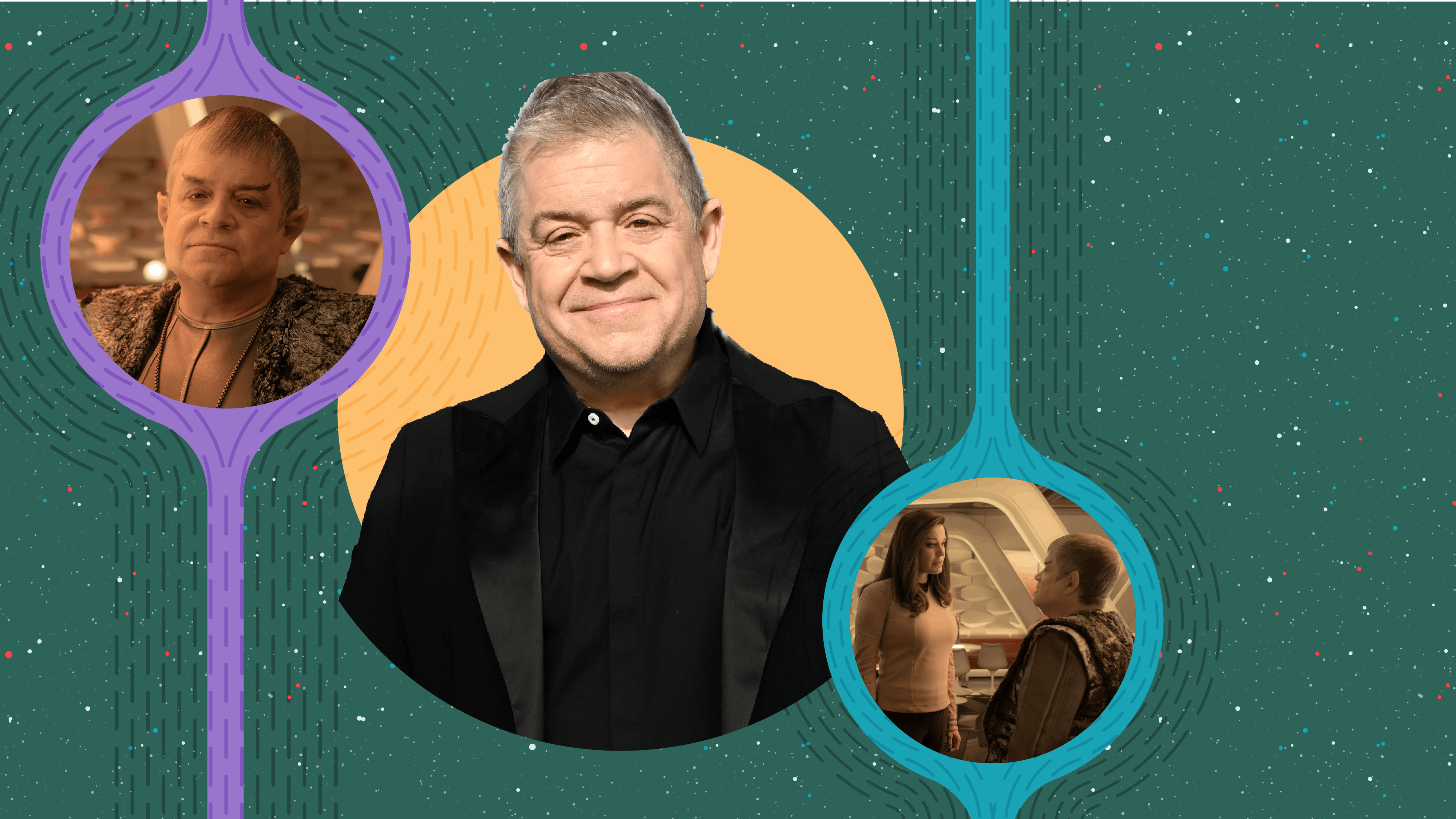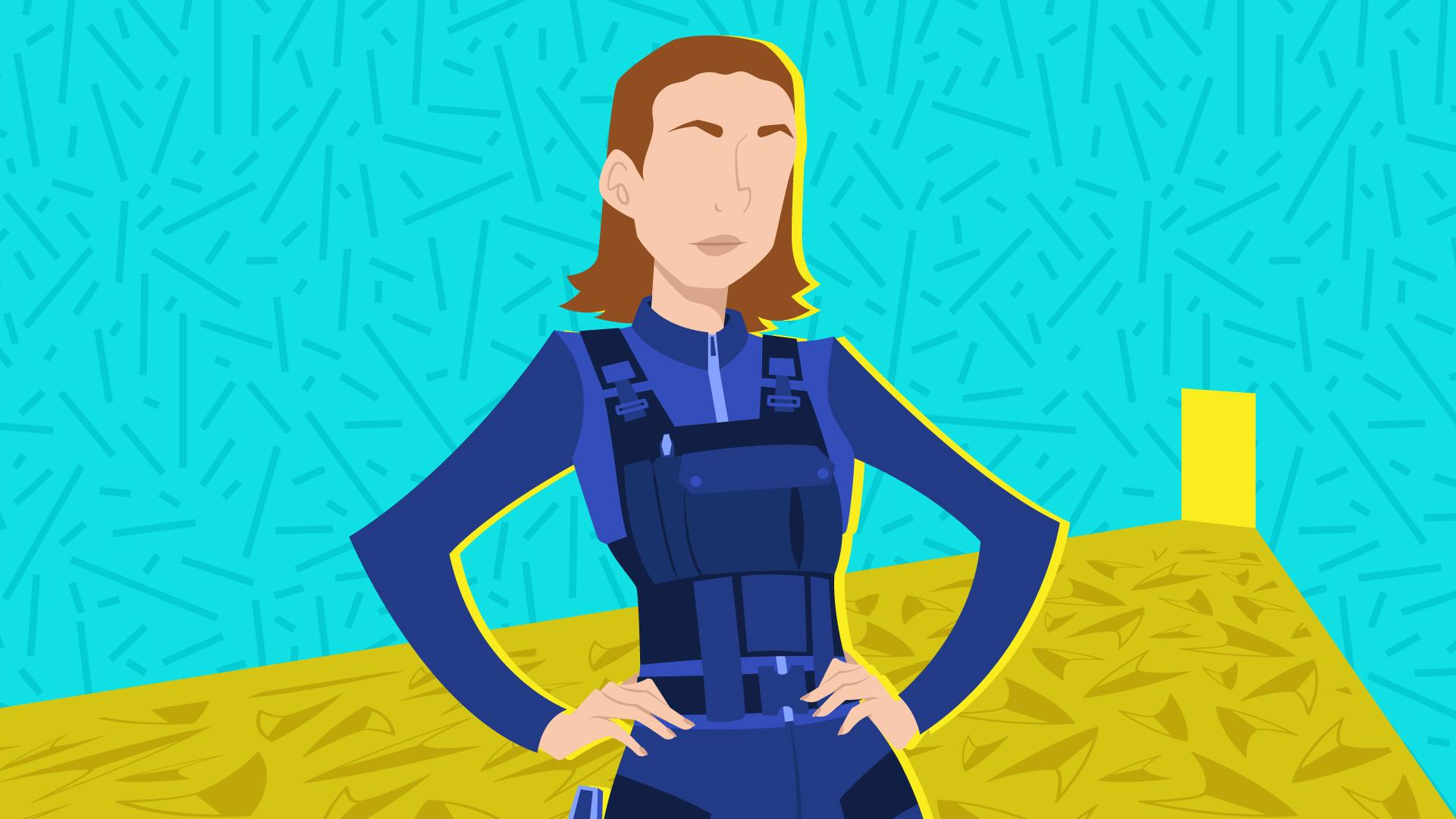Published Jun 5, 2024
WARP FIVE: Doug Jones Reflects on Action Saru and Discovery's Conclusion
The Star Trek: Discovery actor sheds insight on Saru's relationship with T'Rina, Saru's evolution, and more!
SPOILER WARNING: This article contains story details and plot points for the fifth season of Star Trek: Discovery.
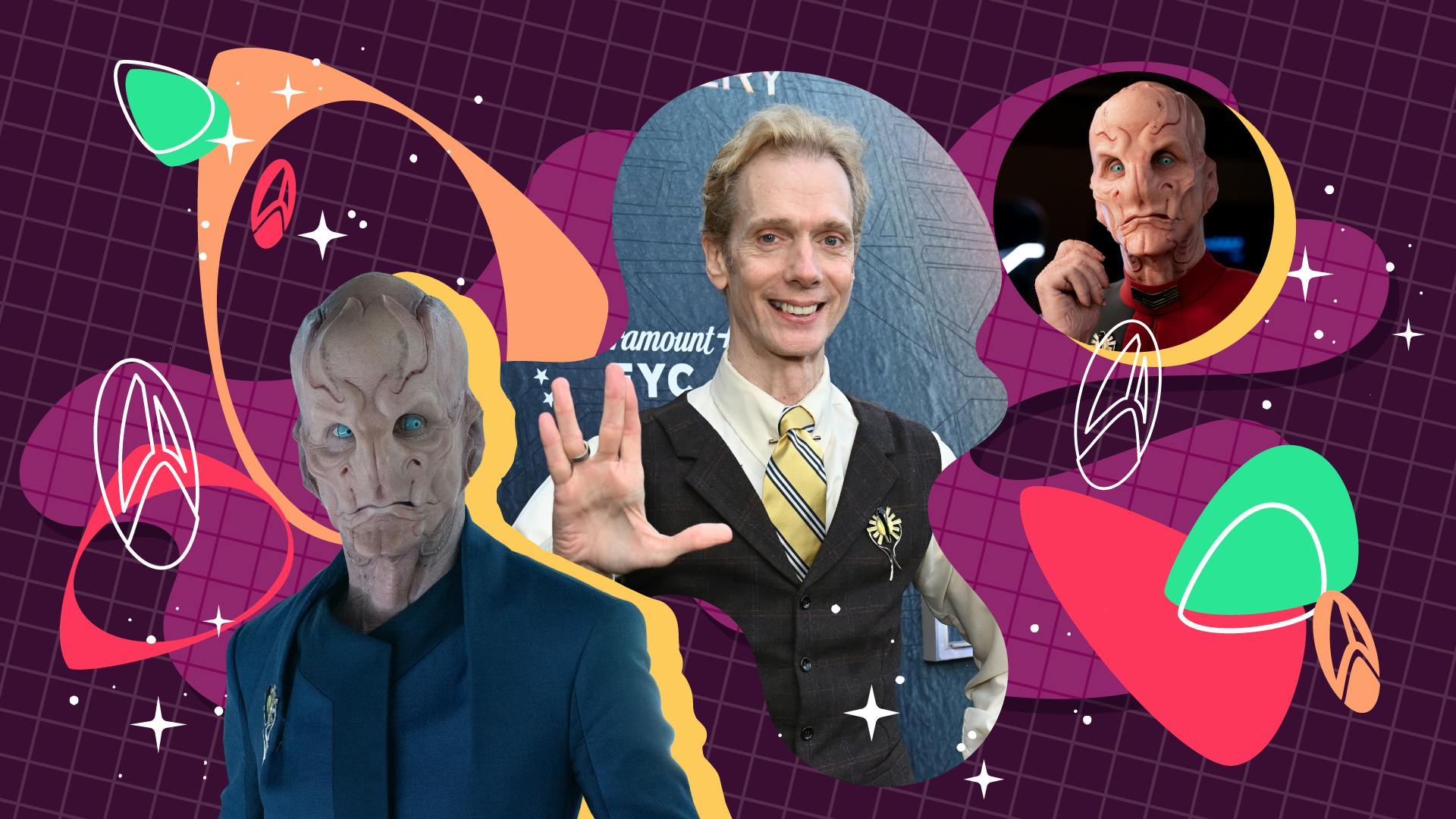
Getty Images / StarTrek.com
Welcome to Warp Five, StarTrek.com's five question post-mortem with your favorite featured talent from the latest Star Trek episodes.
Saru has had an extraordinary journey since he first debuted with the premiere of back in 2017. The Kelpien was the first of his species to make contact with the greater galactic society, was granted refugee status and joined Starfleet, served as U.S.S. Shenzhou's chief science officer, then as the U.S.S. Discovery's first officer under Captain Gabriel Lorca, received the Starfleet Medal of Honor for his actions during the Federation-Klingon War, captained Discovery when it was transported to the 32nd Century, became a member of his homeworld Kaminar's village council, and then returned to the Federation serving as Discovery's first officer under Captain Michael Burnham.
At the start of the fifth and final season, Discovery's and Saru's love for Ni'Var President T'Rina would lead him to resign from Starfleet and . In the series finale, "," Saru embarks on a suicide mission with Nhan negotiating with Breen Primarch Tahal in order to give the U.S.S. Discovery a fighting chance against Moll and a Breen Dreadnaught. Successful, Discovery completes its mission, allowing Saru's friends and colleagues, to celebrate at his wedding with T'Rina.
Ahead of the epic conclusion, StarTrek.com had the opportunity to sit down with Saru himself, Doug Jones, to discuss "Action Saru," the Breen showdown, Saru's commitment to love and duty, and more!
Saru's Fifth-Season Evolution

"Under the Twin Moons"
StarTrek.com
Following his own personal five-year mission with Star Trek: Discovery, Doug Jones reflects on his "really, really satisfying" time, "Saru's journey over all five seasons has been a climb. He's been advancing both professionally and personally all these years."
"When he was captain in Season 3, he guided the ship," details Jones. "Then, he gave that captaincy to Michael Burnham to carry on Season 4. He came back as first officer to help her on that special for that year. 'Do you leave a captain in the first officer position forever?' was the question that was on our minds. The advancement and promotion to being an ambassador for the Federation was a perfect move for him. He could have captained his own ship perhaps, but Federation diplomat seemed to be more fitting for him because he's such a gentleman, always has been. He really does understand negotiating with a gentle touch."
"He's also kind of a badass at the same time," Jones adds. "As we saw in the final episode of Season 5, 'Action Saru' can be channeled into a very, very stern conversation if he needs to. I love where he's come from, all that fear and anxiety that he's left behind now, and living a life of courage, confidence, and romance. It's a really good fit for him.
Action Saru's Showdown with Primarch Tahal
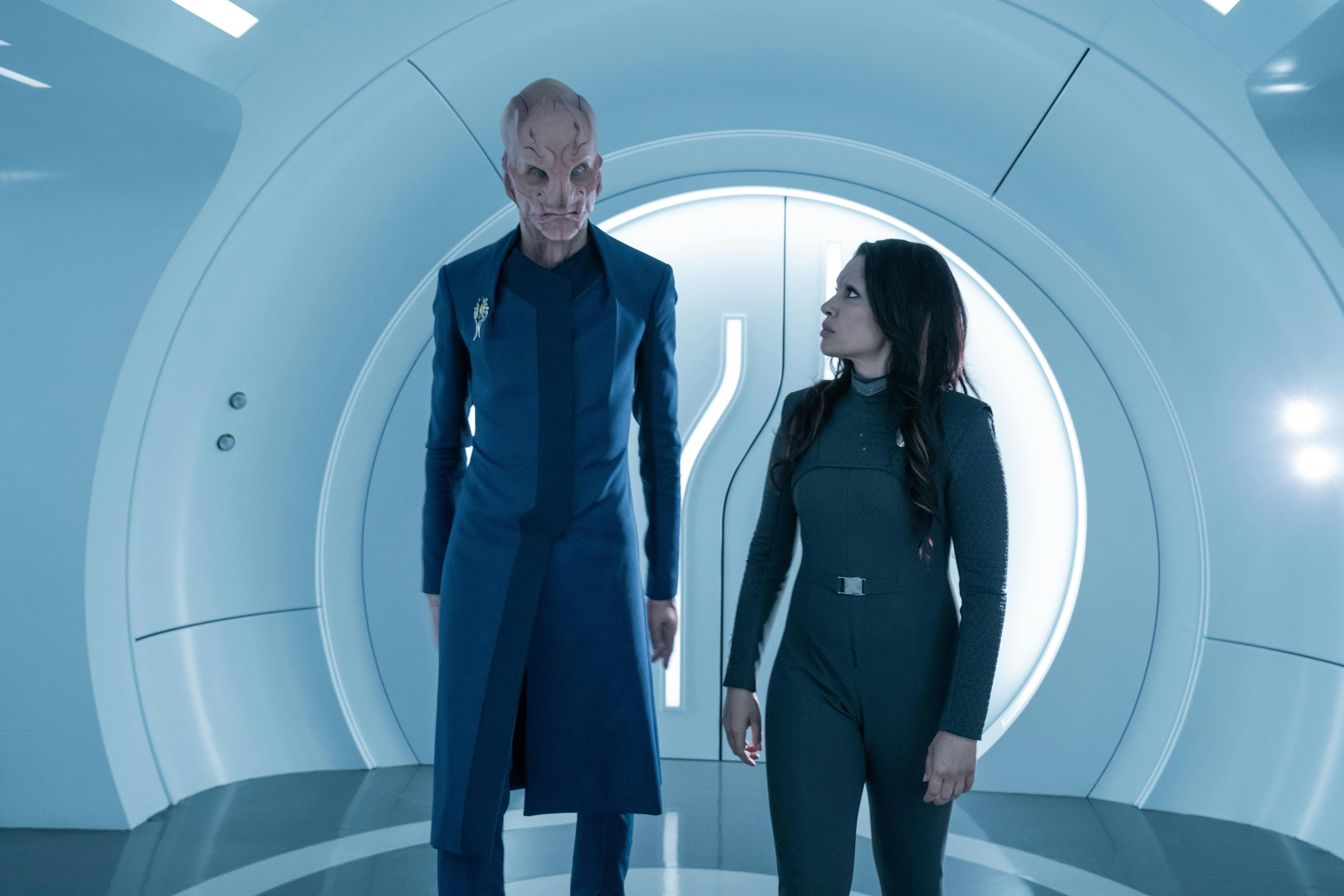
"Life, Itself"
StarTrek.com
In "Life, Itself," to prevent Tahal from learning about the Progenitors' tech, Saru makes a risky gamble by goading the primarch, calling her a cowardly Breen representative, who is jeopardizing her chance of securing the Imperium's throne. Tahal questions if Saru is insane, as he reminds her that the Kelpiens, by nature, are predators, and he has studied her as prey. Challenging Tahal and willing to attack her forces without mercy at the risk of lives lost, she backs off.
Saru's transformation to 'Action Saru' would not have been possible without enduring the Kelpien biological event Vahar'ai — the loss of their threat ganglia and suppression of fear — in Season 2, which also influenced Jones' own transformation.
"[Saru's evolution] became very personal for me, for the real Doug Jones," Jones shares. "I have also lived most of my life with anxiety and fear. If I can't see what's happen tomorrow, I'll just be afraid of it. That's no way to live. Saru has taught me that. When he went through Vahar'ai and his threat ganglia fell out, they were replaced with these poison dart quill things. His fear was a thing of the past, and now he had the courage and confidence that he'd never felt before. The world around Saru hadn't really changed, but his reaction to it, that was the key. Can I take that in as a person? Can we all learn something from that? I'm still going to get things in the mail that'll scare me. I'm still going to have things happen, something that makes you go, 'Oh!' My reaction to it can be- I want to wear a wristband that says, 'What would Saru do?' He would carry on and say, 'We've gotten through worse than this. We're going to get through this too.'"

"Under the Twin Moons"
StarTrek.com
Speaking to Saru's two labels, 'Action Saru' and 'insane,' Jones muses, "He'd take both of those on with glee. As a Kelpien, of course, the post-Vahar'ai is indeed a badass. The 'Action' part of me, I do have more strength, speed, vision, hearing than humans. So he takes on Action Saru, and if I need to go into action, I'm a good fighter. I know how to do that. The 'Insane' part is that newfound confidence Saru has that makes him commit to things that a human might be, 'Are you sure?' Yeah, I'm a little bit insane and I can back it up."
Saru and T'Rina's Relationship

"Red Directive"
StarTrek.com
In the series' penultimate episode, "," in an emergency meeting with Federation President Laira Rillak, T'Rina, and others, Saru volunteers for the risky mission to establish communications with Tahal, which causes concern from his partner, who had planned to draft up a list of suitable candidates to act as the delegate. In a private conversation following the debriefing, the two address their upcoming nuptials, and how they each worried if they could be committed to protecting the mission versus their love. Saru concludes that Vulcans aren't the only ones capable of choosing logic and duty over emotion, "We both have chosen lives of service. To balance that with our love for one another will never be easy. But at least it is a struggle we can face together."
"I interpret it as the perfect relationship because they do understand each other's duty and responsibilities so much," states Jones. "Of course, a natural concern would be, 'Are you sure this is safe? We're just starting our lives together. Do you want to end it now, really?' It's a great conversation we should all have. But, at the end of the day, we understand that we must do what we're built for and that's what drew us together in the first place. We admired and were attracted to those qualities in each other. So she knows I have to do this. But with Saru's newfound confidence he's confident he's going to return to her, and lo and behold, he did."
Jones sees Saru and T'Rina's devotion to duty as "part of their DNA," stating, "I don't think they wake up and say, 'Will I be loyal to the Federation today or Ni'Var, or my responsibilities to Starfleet or Discovery specifically?' No. That's a part of who they are. It's like waking up and saying, 'Am I human today?' I don't have to make that decision, I just am. So they wake up with the same thing. It's like, 'Am I a part of this whole system?' Absolutely, I don't have to think about it."
Burnham's Choice with the Progenitors' Tech
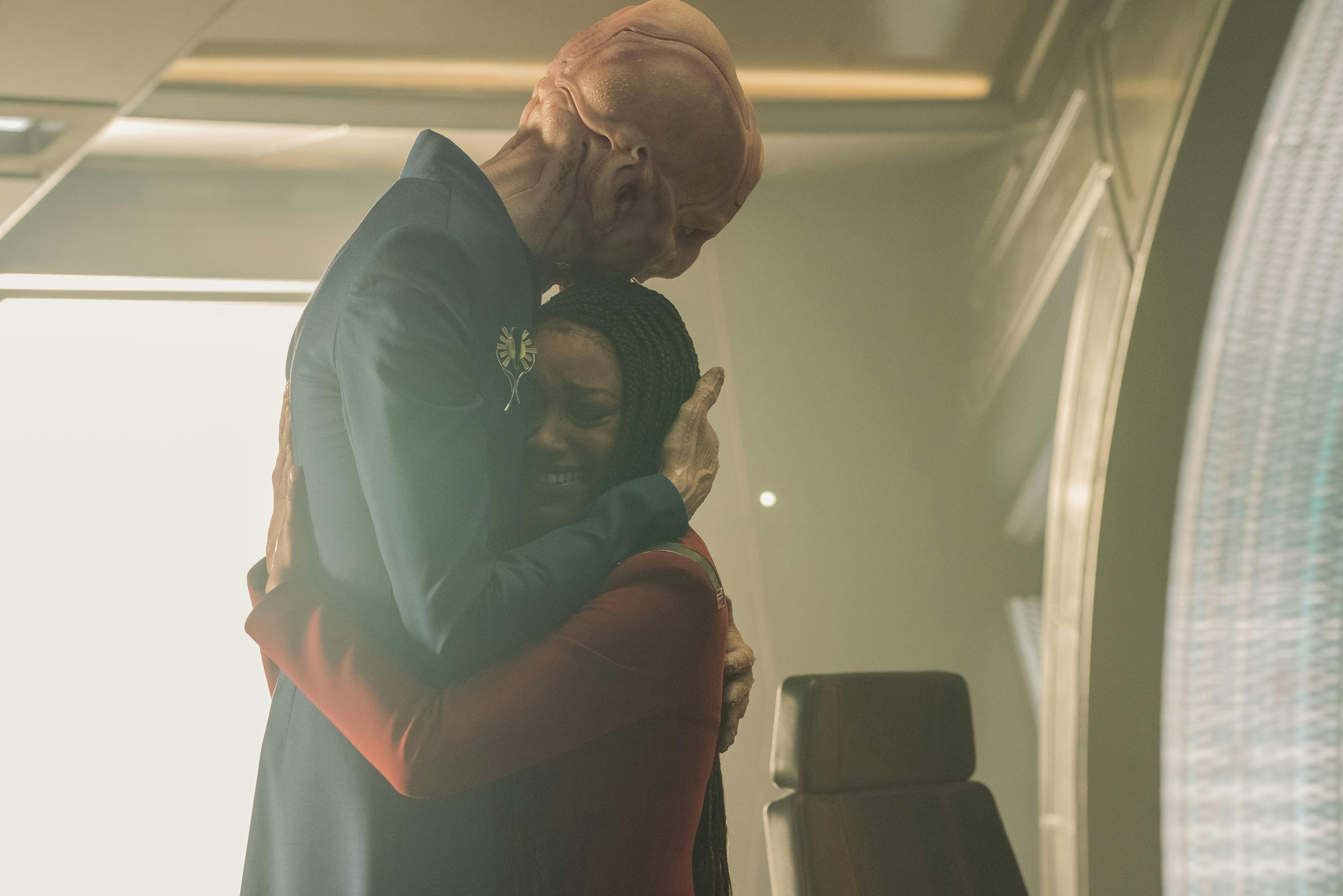
"Life, Itself"
StarTrek.com
In "Life, Itself," following her interaction with the Progenitor in the portal, Captain Burnham debriefs Saru, Rayner, Stamets, and Adira about her decision to not take their technology back to the Federation, believing the galaxy already has infinite diversity in infinite combinations, and that power is too great for one person or culture to have access or control of — they're going to let it go.
What does Saru make of Burnham's decision?
"This is a moral question; it's a great thing to address," reflects Jones. "So many of us have questions as people, 'Where do we come from? What's it all about? Is this life on planet Earth, with its start and its end? We all have to die at some point. What's it all about? What's the point of it? Is there a bigger picture? Where do we come from? Who created us and why?' All those things."
"To dramatize that in science fiction land is a brilliant audience engagement question," Jones continues. "So now that we found the answer, we have it in our hands, what do we do with that? Are we big enough to really do anything with this? Or should we let it be what it was and carry on our lives? So I think Saru really respects Burnham's choice. I really think he does because he understands the implications of that. Again, we already saw that in the wrong hands, that technology, that information, that power could be super abused. Let's let it be."
Closing the Book on Saru
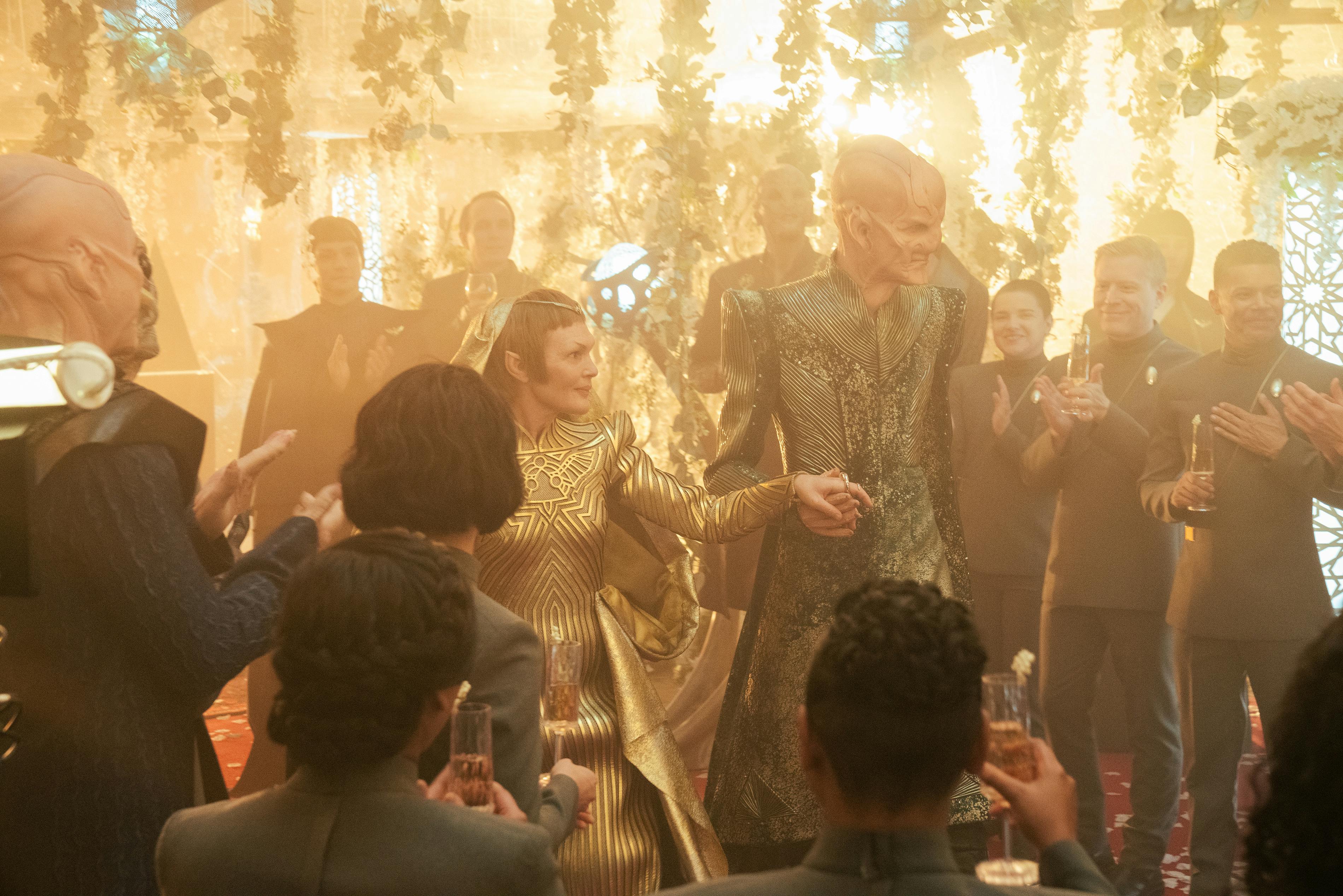
"Life, Itself"
StarTrek.com
"Saru and Discovery in general, to me, mean a page turning for Doug Jones," concludes Jones. "I'd already had a long-established career before Discovery, but I've been wearing a lot of rubber bits on face and body for my 38-year-career, and the last time I took rubber off my face was that epilogue that we shot for Star Trek: Discovery Season 5. I have been playing humans ever since in these last couple year and a half. That's an exploration I wanted to do. I want to explore what human characters are out there for me. So Saru brought me to a satisfied, 'I have played that,' there's no non-human character left on my bucket list. Now, will I play another rubber-clad character at some point? Sure, I could indeed. Never say never. But Saru helped me turn a page, and with a very satisfied sense of completion. I really feel good about that career under rubber and Saru was a great way to go to with a crescendo."

